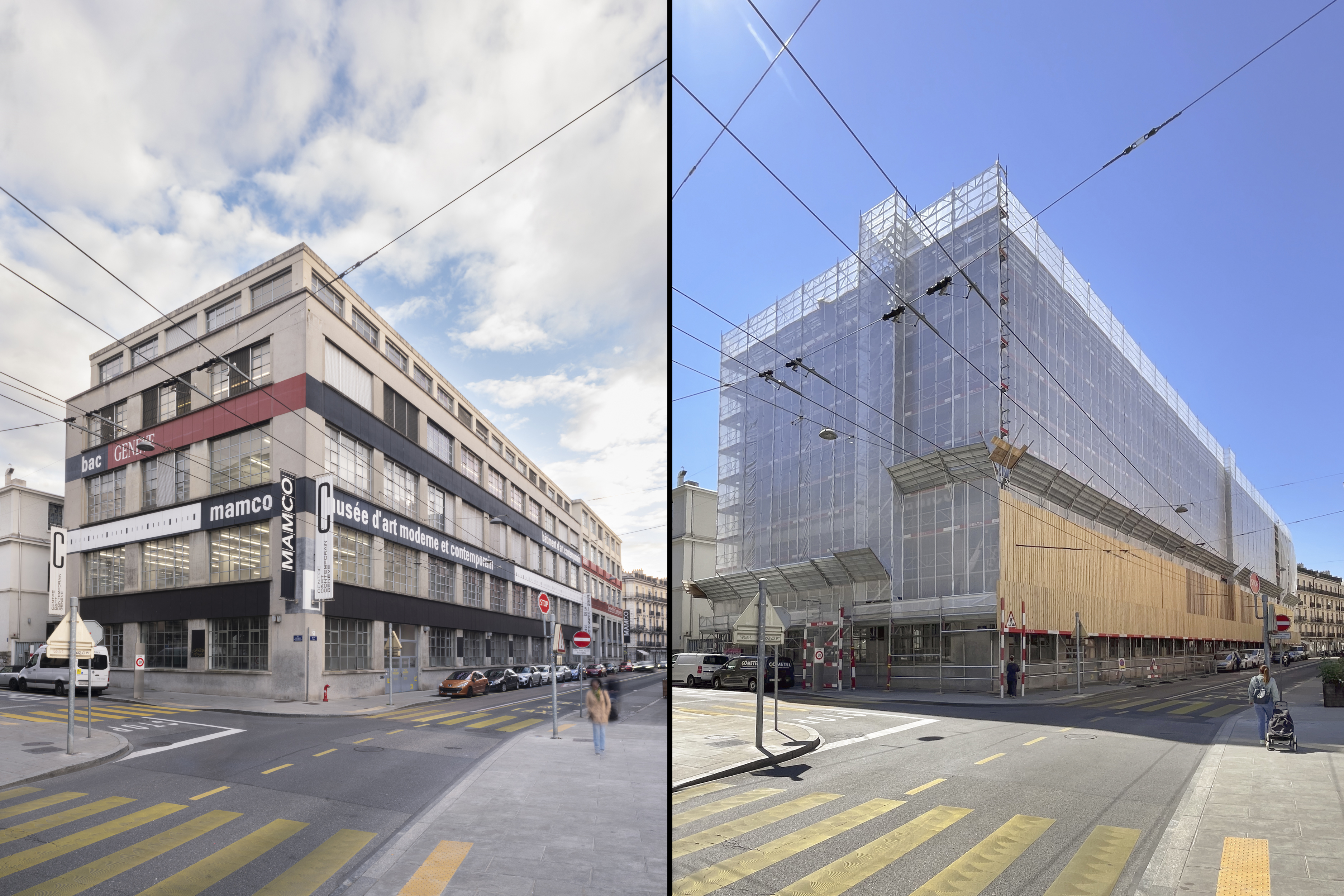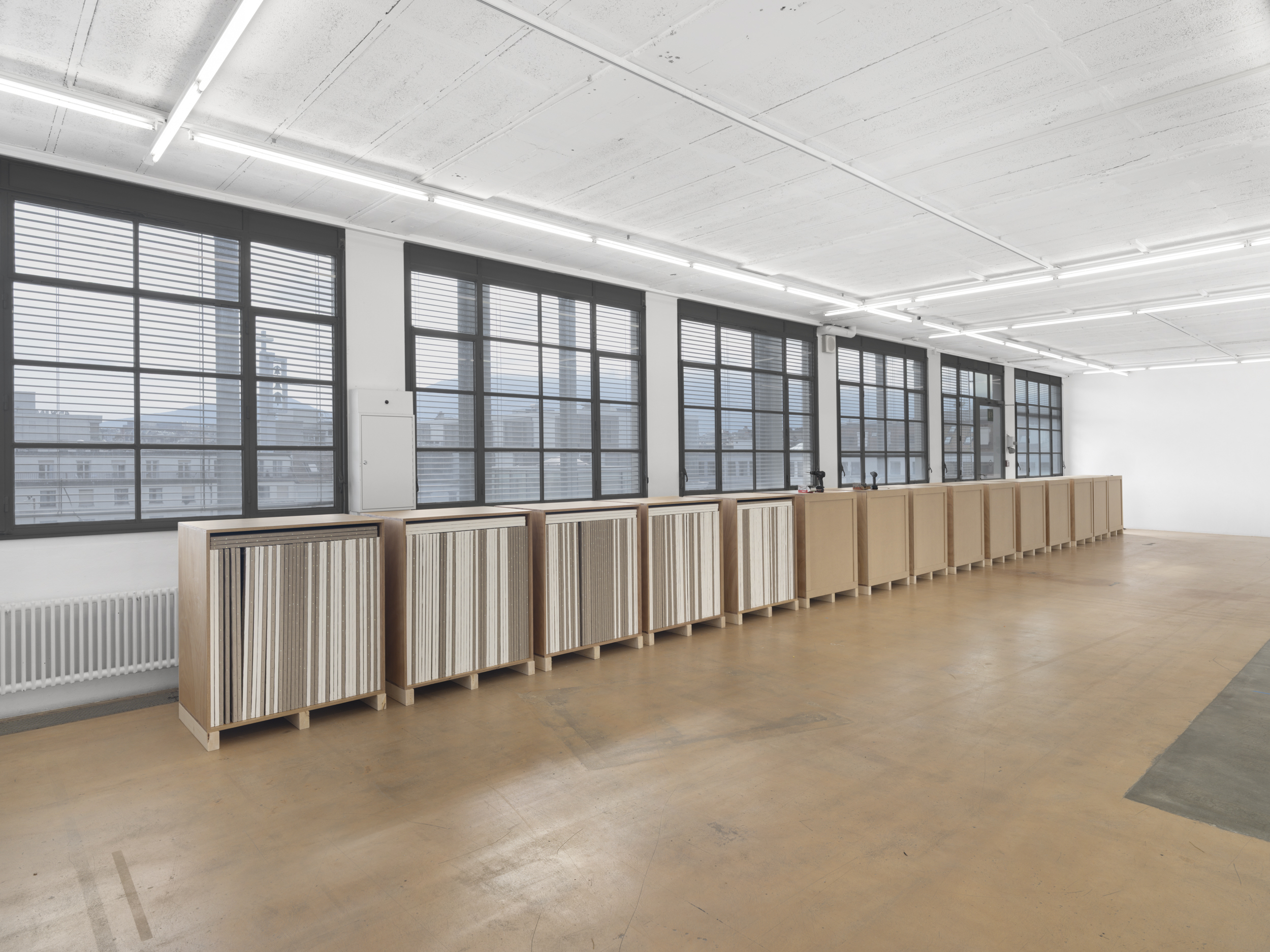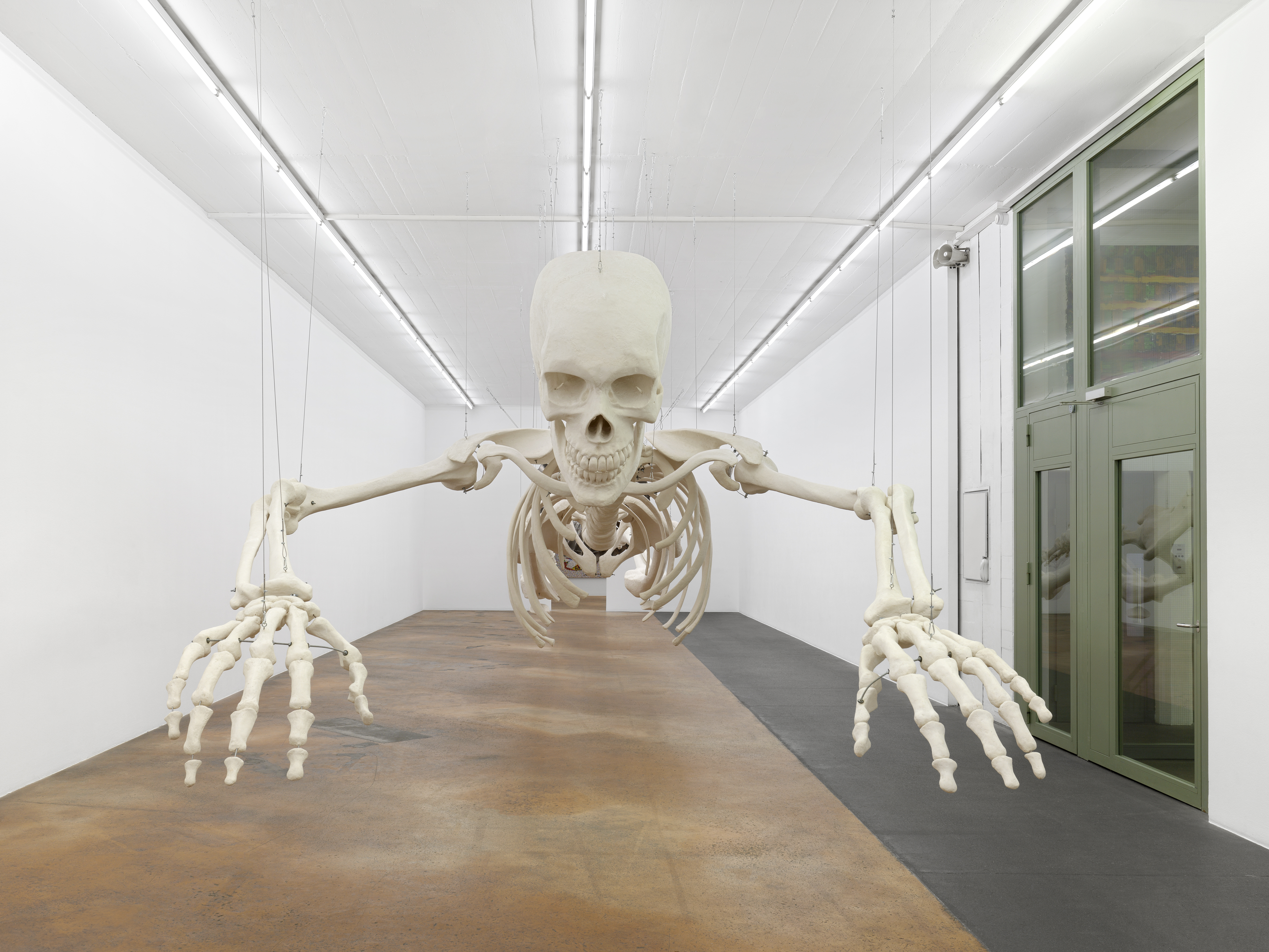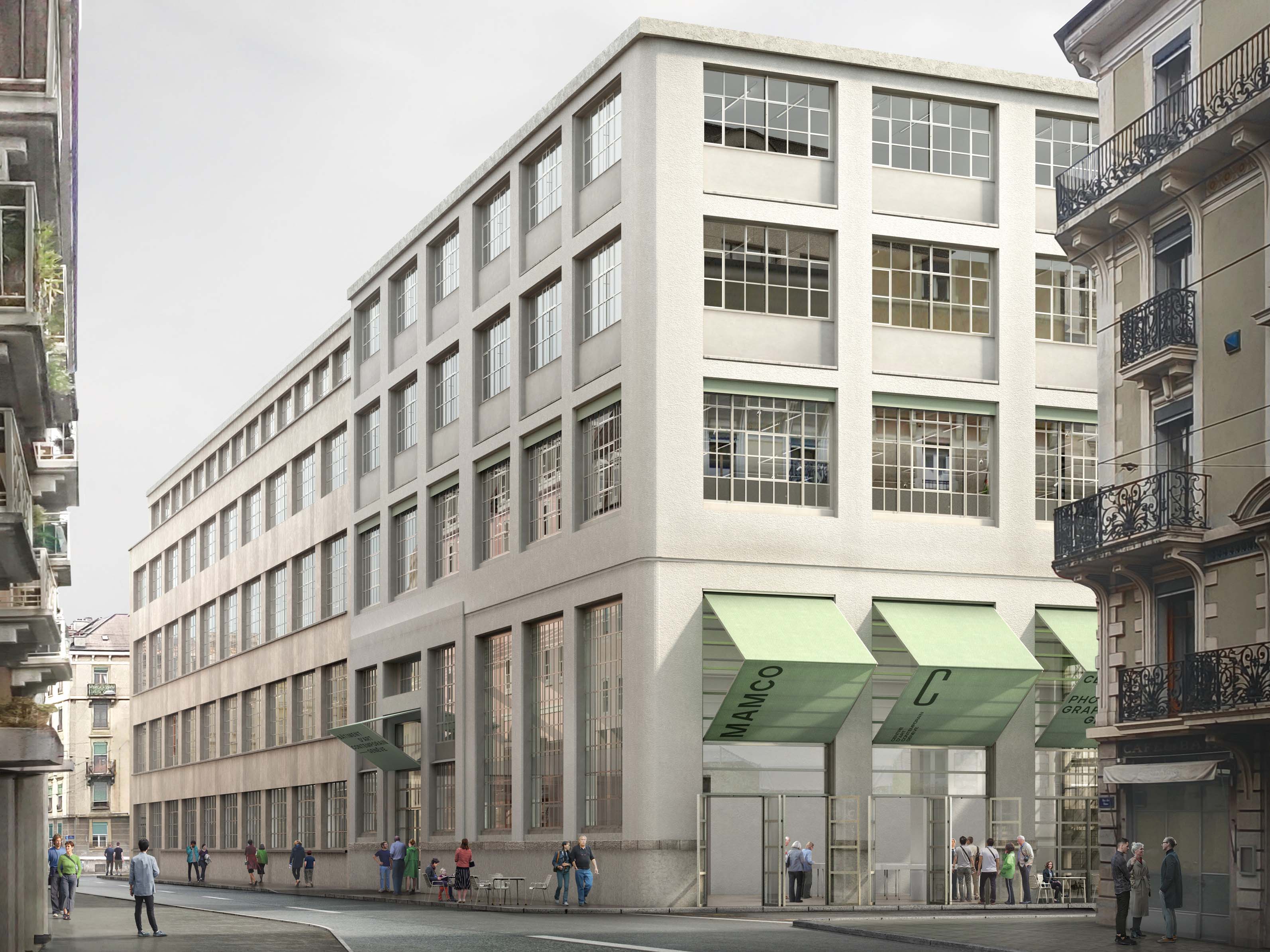Between 2025 and 2028, the museum building will undergo a comprehensive renovation led by the City of Geneva/DACM/DPBA. The project aims to bring the building up to current energy standards, install climate control systems, and restructure its circulation areas. Throughout this period, MAMCO will produce off-site projects in collaboration with partner institutions and in a variety of new venues.
May 2025
Installation of frames, braces, guardrails, and baseboards: the scaffolding is complete around the former SIP's building.

March 2025
As soon as the keys were handed over to the city, scaffolding was erected. This marked the beginning of the 48-month renovation project.
January–March 2025
MAMCO is on the move: the artworks are evacuated, the libraries, offices, and the technical workshops are dismantled, and the numerous basement storerooms are emptied.

December 2024
Closing of the last exhibition of MAMCO before renovation: Le MAMCO, de mémoire, a participatory presentation in which we invited our regular and occasional visitors to choose their favorite works of art from the collection—thus closing together a 30-year cycle of activities while waiting to move back into the building.

October 2024
The Geneva City Council officially validates the renovation credits. This marks the start of a race against time for MAMCO team to draw up a relocation plan that would allow them to leave the site on time and plan off-site activities.
June 2024
The Administrative Council is proposing to the City Council the opening of four credits for a total of CHF 66 million, including CHF 22 millions of private contributions from the MAMCO Foundation, i.e. CHF 44 million for the renovation, decontamination, redevelopment, and equipping of the Bâtiment d'Art Contemporain.
March 2024
Following its fundraising campaign, the MAMCO Foundation has pledged 22 million Swiss francs. MAMCO is proud of the loyalty of its patrons and thanks them for their continued commitment and generosity.
December 2021
The proposal by Kuehn Malvezzi of Berlin, Germany, and CCHE Geneva was selected by the panel of experts. The main objective of the renovation project is to free the building from the interventions that have accumulated over time. The aim is to restore the integrity of the intrinsic qualities of this remarkable industrial building in the heart of the Bains district. The reception area will regain its original double height thanks to the removal of the extra slab. The new layout will create a real focal point, offering not only a shared reception area for the three institutions, but also a transparent, convivial space accessible to all.

January 2021
As the long-awaited renovation began to take shape, the building's institutions launched a capital campaign to meet their obligations to the City of Geneva.
2020
By organizing a multidisciplinary architectural competition in the form of a two-stage parallel study mandate (called “MEP”), with a selective procedure, the City of Geneva aims to enhance the value of the building, which is protected by a heritage listing. No fewer than 46 applications were received and considered eligible to participate in the selection process, which was carried out by a panel of experienced experts. Six proposals, submitted by six multidisciplinary teams, were selected for the first stage of the MEP. At the end of this phase, three teams were invited to continue the process and develop their projects in the second phase.
2019
The Administrative Council of the City of Geneva and the foundations (Fondation de droit public du Musée d'art moderne et contemporain FONDAMCO, Fondation de droit privé du Musée d'art moderne et contemporain, Fondation de droit privé du Centre d'Art Contemporain Genève and the Stiftung Usine) have signed an agreement which acknowledges the need to renovate the building as soon as possible, and formalizes this public-private partnership.
2018
After several unsuccessful attempts in the past, and in view of the fact that the current state of the building no longer allowed the museum to develop or to welcome a growing number of visitors in good conditions, the museum's Board decided to relaunch the project to renovate the building. In fact, it was becoming more and more urgent to bring the building up to current energy standards, to install air conditioning for the conservation of the works, but also to be able to welcome visitors in an appropriate manner, by improving accessibility and providing the now essential convivial spaces, such as a cafeteria and a bookshop.